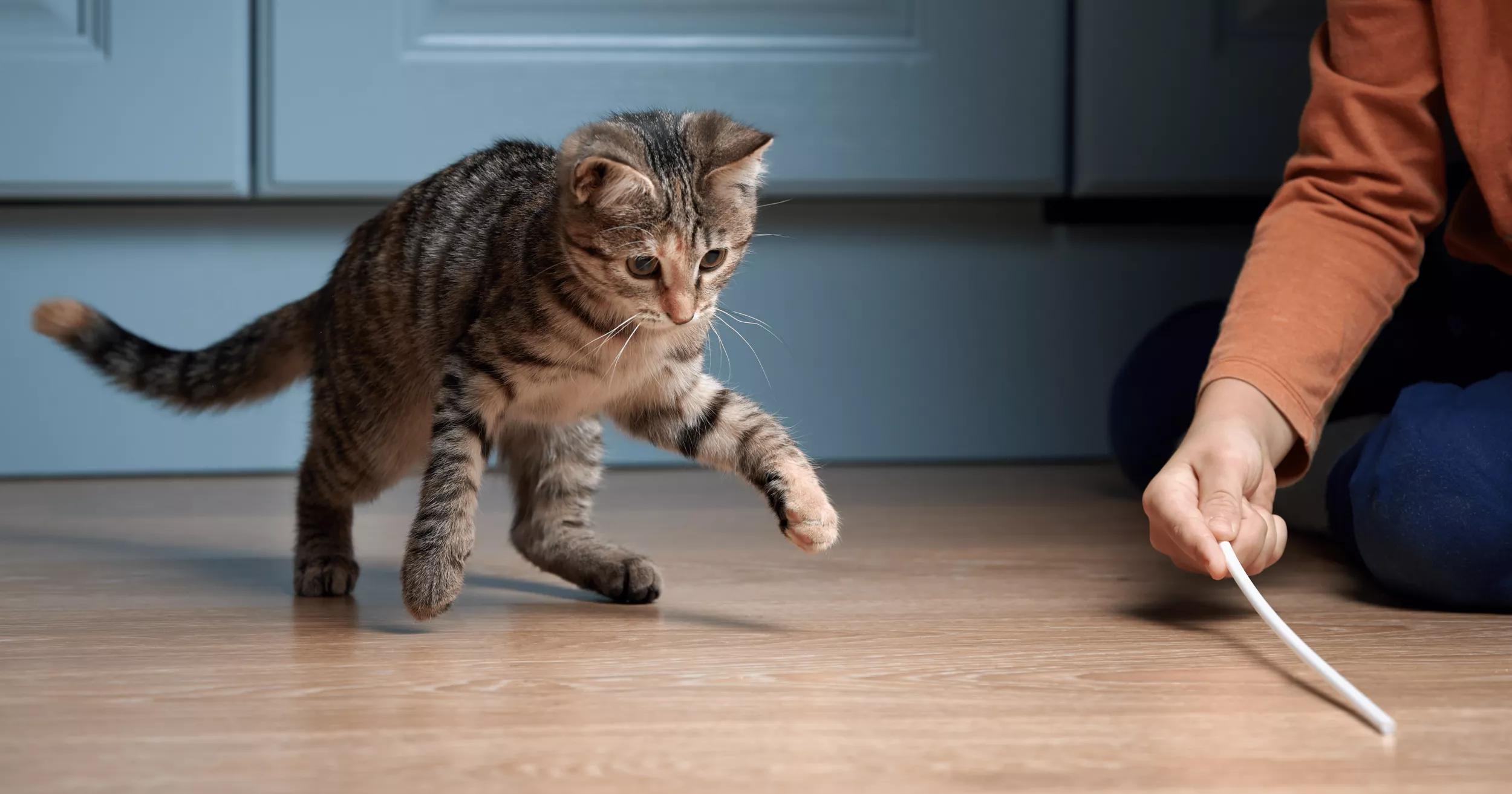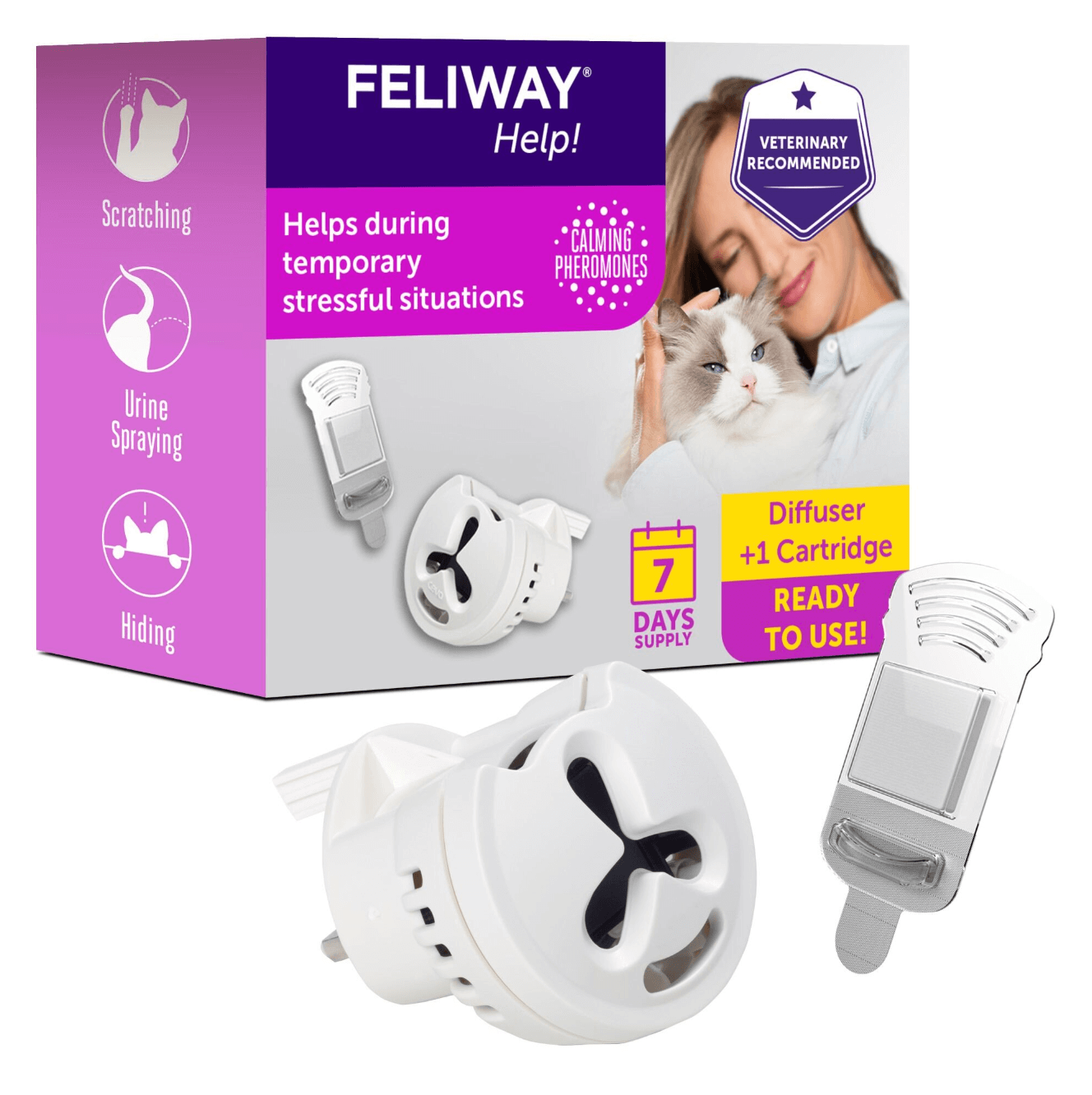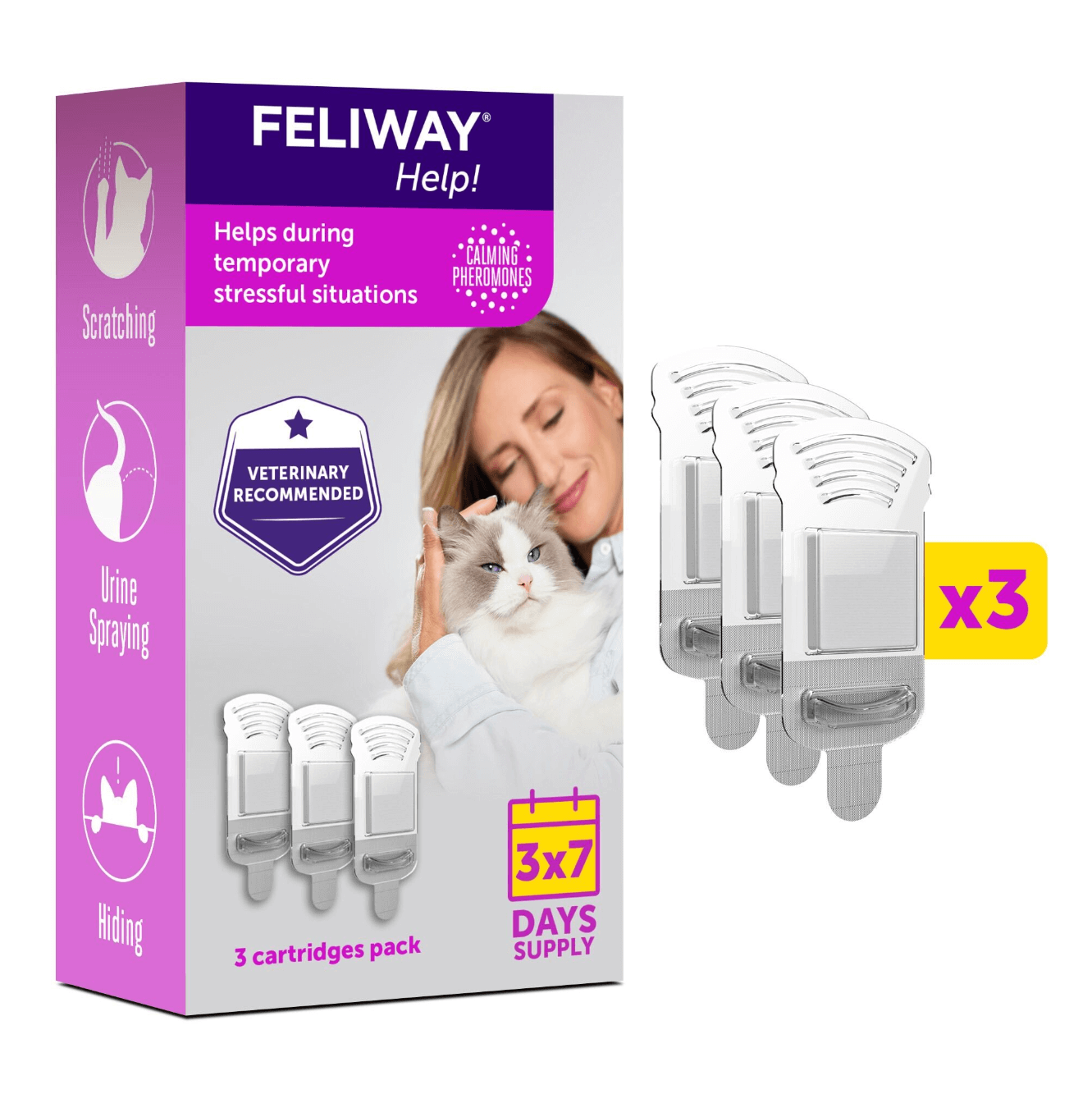
Where Should A Kitten Sleep At Night? A Kitty’s Point of View
Meow! Meow! I don’t recognise this house… and where’s my Mummy and siblings? This is all very different – the only thing I recognise is the old sweater that my pet parent brought to me when I was still with my litter. That does make me feel better as it’s now familiar to me and they have put it in that lovely cosy bed – I expect that’s to help me adjust to my new home.
The sweater was also in the cat carrier that I travelled in. But what was that huge thing we all sat in to get here? They called it a car, but I’ve never seen anything like it before. There are so many new things that I’m discovering and it’s difficult because cats don’t like change – cars, new people, new sounds and now a new home.
Come to think of it, where am I going to sleep? Kittens need to take a lot of naps during the day, you know.
Where should a kitten sleep at night?
Sleep is important for a kitten's development, so having a good night’s sleep will help me feel strong enough to explore my new home.
I’ll be honest, I am feeling a bit nervous as I’m used to cuddling up with my siblings, but there are a few things that I think will help me to sleep on my first night.

Make your kitten feel at home
Although we are tiny (and cute!) there are a number of things pet parents need to prepare that will help us to sleep at night. If there are too many changes all at once, it will be overwhelming for us. My pet parents took a few steps to help me settle in.
- They made sure I had the same food that I was having before I left my litter.
- They made sure I had the same substrate for my litter tray that I was used to peeing and pooping on. I don’t mind trying different types after I’ve settled in. If you do want to change substrate, I will let you know which type I prefer!
- They bought me a scratching post – I have very sharp claws and scratching helps me to exercise and keep my claws healthy. It’s also very useful for stretching after I’ve had a nap.
- My pet parents made me a lovely comfy bed, where I feel safe. It has lots of toys and the jumper which I got used to before I was adopted.
Remember, cats like to sleep in different places. That could be on top of a cupboard, under a bed or even in a cardboard box.
Introduce them to their new surroundings, little by little
When my pet parents brought me home, they allowed me to get used to one room first, and put all of my belongings in this room, including my bed, food and water. That was a wise move, as I think I would have been overwhelmed by all the different rooms and I probably would have gotten lost!
They also plugged FELIWAY Optimum into this room, which really helped me to settle in quickly. It’s a new pheromone complex which they have recently discovered and it helps cats and kittens, like me, feel more serene, helping me to cope with all the changes.
I think this will be my favourite space and probably the room I’ll sleep in most of the time.
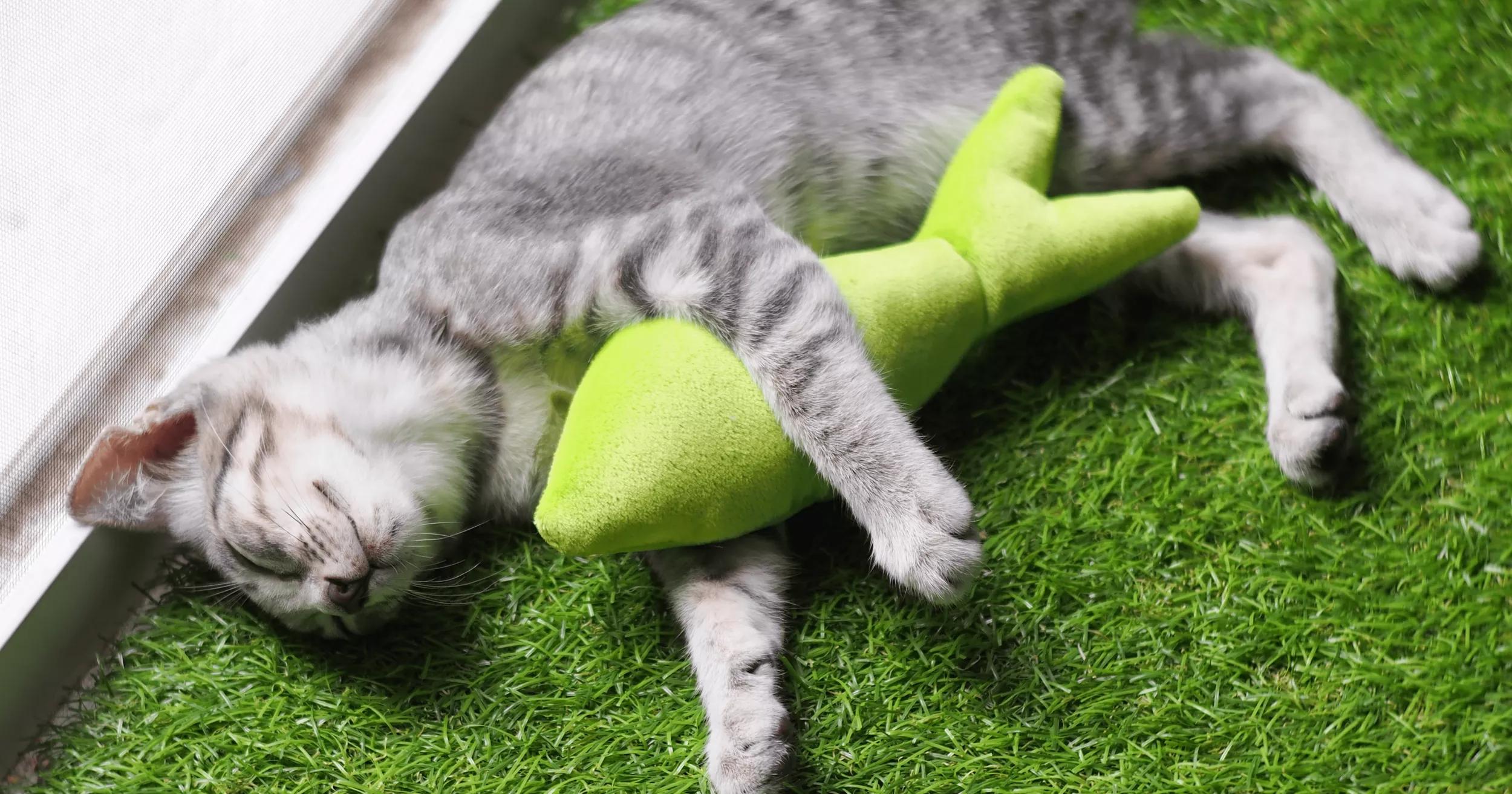
The ideal bed
Kittens look for somewhere warm and cosy to sleep, in a spot where they feel secure and away from draughts – somewhere elevated off the floor works well. My bed is in a corner of the room on stool – and that’s great because I can see what's going on all around me.
My bed also has high sides so I feel nice and cosy. Sometimes in the winter, my pet parent puts a hot (not too hot) water bottle underneath my cushion – which I love!
Some pet parents allow their kittens to sleep on their bed. Personally, I prefer to jump into their bed when they get up in the morning when it is all warm and cosy – when they turn over in the middle of the night it disturbs me, as does their snoring! But every cat is different and some like to sleep alongside their pet parents while others are happy to be in the same room, but in their own bed.
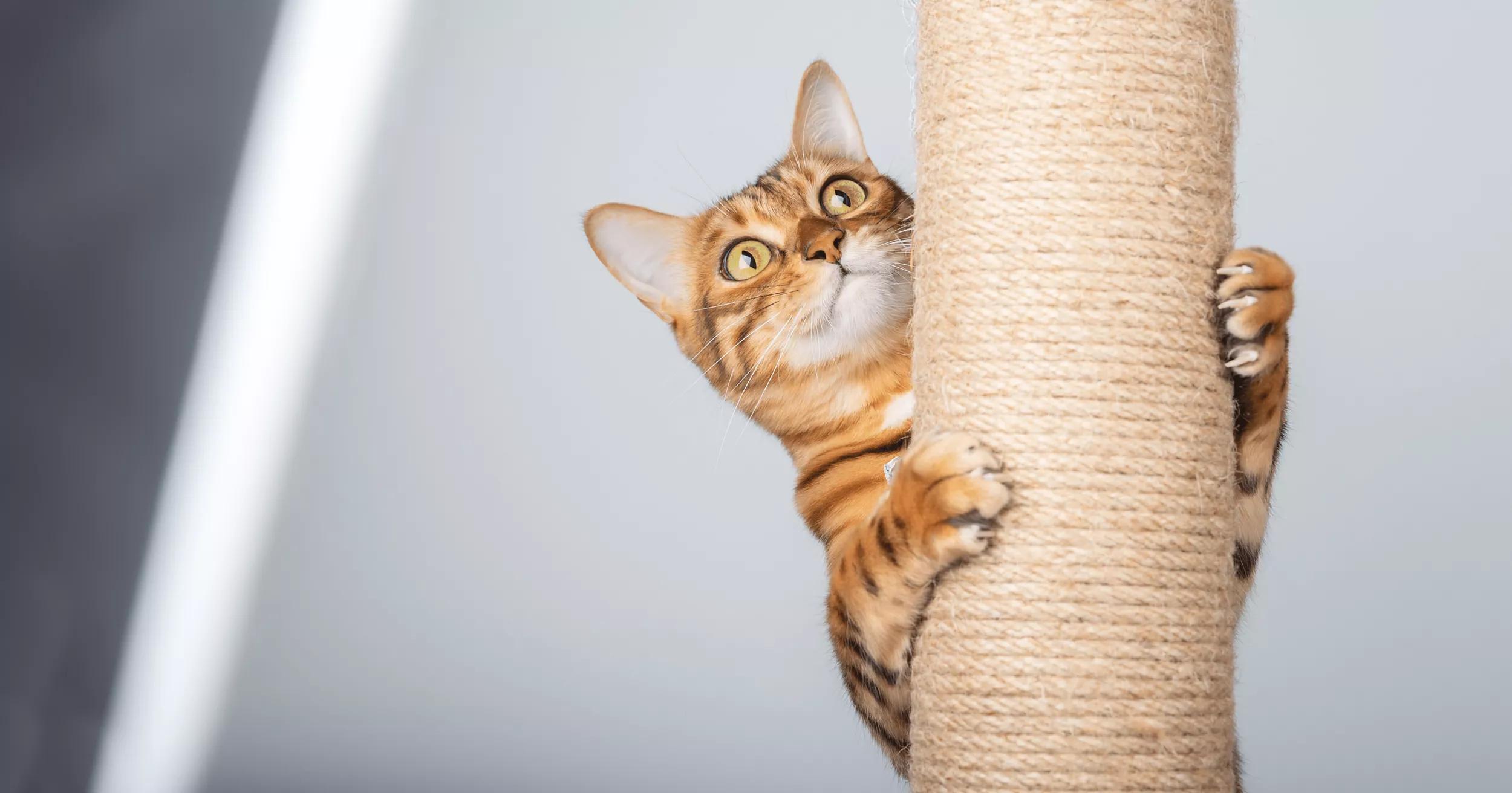
Tips to help a kitten settle for the night
Cats are crepuscular, which means we get very active at dawn and dusk. Some of us also like to go outside at night and explore our surroundings under the cover of darkness.
But, if you prefer that we stay indoors at night, here are a few tips to help us settle.
- Make sure we have lots of opportunities to play during the day and have sufficient mental stimulation, such as puzzle boxes (you can always make your own). When it comes to bedtime, we will be ready for a good night’s sleep.
- Allow us to have regular cat naps during the day, but make sure we are also kept active by providing scratching posts, toys, and things to climb on when we wake up.
- Keep all the exciting toys aside for our pre-bedtime play session. This will help to make us sleepy – but remember to rotate the toys so that we don’t get bored. Find a way to signal that playtime is over, for example by letting us catch an enticing toy.
- Feed us close to bedtime. A nice full tummy makes a sleepy kitty! Remember that our ancestors would hunt, eat, then sleep so this would mimic what they used to do.
- Develop a routine that your kitten will get used to. For example, turn off the TV, lock doors, have a nighttime drink, switch the lights off and encourage your kitty to go to its cosy bed. Once your cat gets used to your routine, they’ll know it’s time for them to sleep too.
- You could even try playing some soothing music to help your cat settle – I am rather partial to a little Bach or Chopin, myself!
- Sometimes, kittens disrupt owners' sleep because they miss the warmth of their mothers or siblings. Try warming their blanket in the dryer for twenty minutes before bedtime.
- If your kitty wakes up in the middle of the night and wants to play, this can be quite annoying for pet parents, especially if they play with noisy toys. My pet parents only leave out my soft, quiet, toys overnight so that I can play by myself.
- If we wake you up at night, check that we are ok - and then ignore us! If we get your attention once, then we’ll try again!
- If you think that your cat is waking up early in the morning because they are hungry, try using an automatic feeder that dispenses food at specific times of the day. Your cat will quickly learn when their next meal is due.
- Watch for signs of medical problems. Cats can suffer from medical issues that disturb sleep, just like humans. If your kitten shows any of these symptoms, have a vet conduct a full examination.
